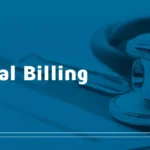
Product liability refers to a business’s legal responsibility for the products it manufactures or sells to consumers. When a product causes harm or injury to a person, the manufacturer, distributor, or retailer can be held liable for any damages incurred. The product liability insurance is a specialized form of coverage that protects businesses from potential lawsuits and financial losses resulting from product-related incidents.
The Basics of Product Liability
The product liability insurance is based on the principle that manufacturers and sellers must provide consumers with safe products. There are three primary types of product liability claims:
Design Defects
Design defects occur when a product’s design is inherently flawed, making it unreasonably dangerous to users. These defects are present before the product is manufactured.
Manufacturing Defects
Manufacturing defects occur during production, resulting in a product that deviates from its intended design and poses a risk to consumers.

Marketing Defects
Marketing defects relate to inadequate warnings, improper instructions, or failures to disclose potential risks associated with a product’s use. These defects typically involve issues with labeling, packaging, or instructions.
The Importance of Product Liability Insurance
Financial Protection
A product liability claim can result in substantial legal expenses, settlements, and damage awards. Product liability insurance ensures that your business has the financial means to cover these costs, preventing them from depleting your assets or impacting your bottom line.
Reputation Preservation
When a product causes harm or injury to a consumer, it can severely damage your brand’s reputation. Product liability insurance provides coverage for crisis management, public relations, and brand recovery efforts, helping you rebuild trust with your customers.
Compliance with Legal Requirements
In many jurisdictions, having product liability insurance is a legal requirement for businesses. Failing to obtain coverage may lead to penalties, fines, or even the suspension of your operations. By securing the appropriate insurance, you ensure compliance with legal obligations.
Coverage Options: Types of Product Liability Insurance
General Liability Insurance
General liability insurance often includes product liability coverage as part of its broader policy. It offers protection against bodily injury, property damage, and personal injury claims resulting from product-related incidents.
Products-Completed Operations Insurance
This type of coverage specifically addresses claims arising from completed products or services. It protects businesses from lawsuits related to defects, malfunctions, or injuries caused by their products after they have left their possession.
Umbrella Insurance
Umbrella insurance provides additional coverage above the limits of your primary liability policies. It can extend the coverage limits of your product liability insurance, offering extra protection against high-value claims.
Determining the Right Coverage for Your Business
To determine the appropriate product liability insurance coverage for your business, consider the following factors:
Industry and Product Risk
Different industries and products carry varying levels of risk. Assess the potential hazards associated with your products and select coverage that adequately addresses those risks.
Revenue and Asset Value
Your business’s size and financial standing should influence the coverage limits you choose. Ensure your coverage adequately reflects your revenue and asset value to avoid being underinsured.
Contractual Requirements
Review the contractual requirements regarding product liability insurance if your business contracts with suppliers, distributors, or retailers. Ensure your coverage meets or exceeds these obligations.








